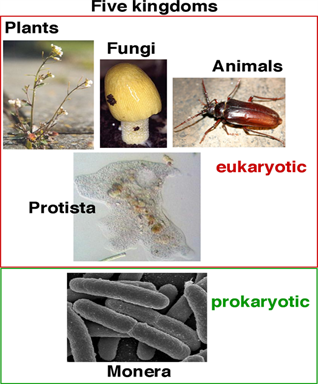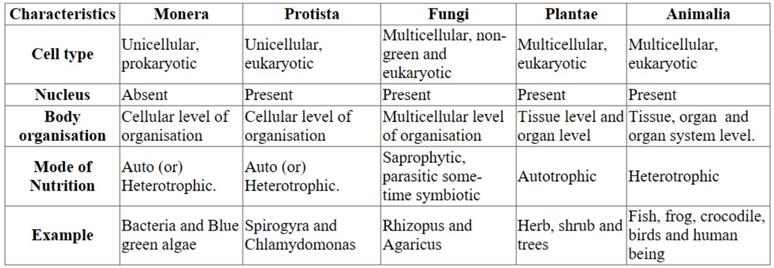
PUMPA - SMART LEARNING
எங்கள் ஆசிரியர்களுடன் 1-ஆன்-1 ஆலோசனை நேரத்தைப் பெறுங்கள். டாப்பர் ஆவதற்கு நாங்கள் பயிற்சி அளிப்போம்
Book Free DemoThe five-kingdom classification was proposed by R.H. Whittaker in 1969.
Robert Whittaker classified living organisms into five-kingdoms on the basis of their cell structure, mode and source of nutrition, and body organization.
- Monera
- Protista
- Fungi
- Plantae
- Animalia

Five kingdom classification
The important characteristics of five-kingdom classification:

Merits of five-kingdom classification:
- It is a system of classification that is more scientific and natural.
- In this classification system, the cellular organisation, mode of nutrition, and characters for the early evolution of life are indicated.
- As in this classification, all the different groups of organisms are placed phylogenetically; it is the most accepted modern classification system.
- It is a system that indicates the gradual evolution of complex organisms from simpler ones.
Demerits of five-kingdom classification
- According to this system, multicellular organisms have originated several times from the protists.
- The viruses are not given a proper place in this system.
- It is a classification that draws back with reference to the lower forms of life.
- Certain organisms that are included under Protista are not eukaryotes.
Answer:
Reference:
https://upload.wikimedia.org/wikipedia/commons/thumb/d/d8/Phylogenetic_tree_of_life.png/512px-Phylogenetic_tree_of_life.png